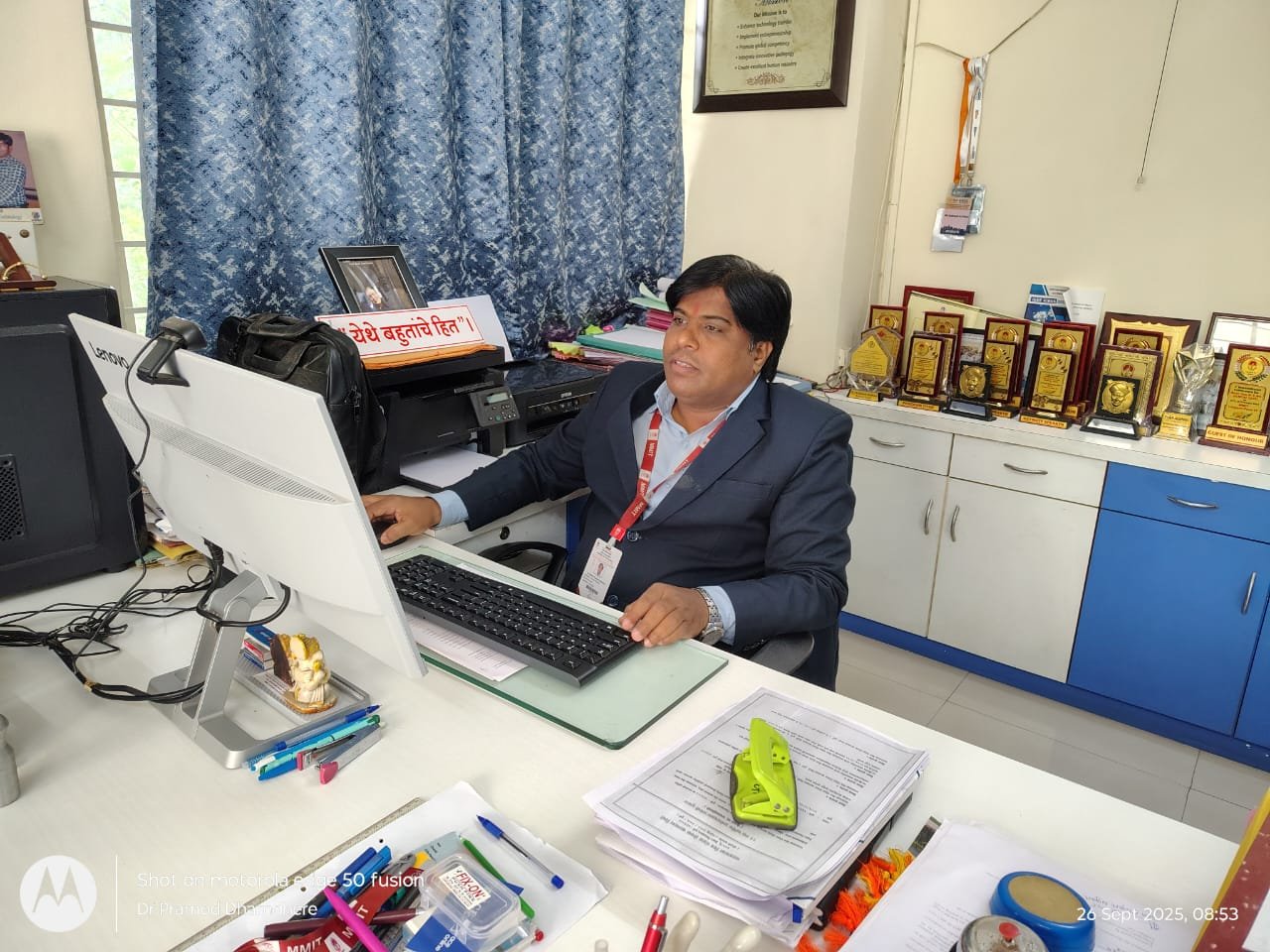About
Home » Computer Engineering

Prof. Dr. Subhash G. Rathod
Head of the Department
Welcome to the Department of Computer Engineering at Marathwada Mitra Mandal’s Institute of Technology, Pune. Today as we are moving towards 4th Industry revolution & we all are fining many changes over the decades. Digitization and Automation is the heart of 4th Industry revolution & hence computer engineering becomes Ubiquitous! As college location is in the area of IT Hub and many opportunities related to career in IT which makes the future not only bright but also creative and productive of students pass out from MMIT.
Department of computer engineering consistently strive not only hardly but also with passionate towards high quality of education with state of art infrastructure..
Department of computer engineering associated with various industry and training partner like ICT Acadmy, Redhat Pvt Ltd, Microsoft Pvt. Ltd., Animationwala Pvt. Ltd. and many more thought which students get real industry exposure and knowledge while leaning in the Institute.
Department having more than 10 patents, many International and National Journal Published in reputed journal.
We the faculty of department not only educate the students but also committed for overall development of students and always motivate them for solving societies problem though real time problem solving skills. As our alumna working on highest positions in corporate as well as public sectors.
All the Best!!!
VISION
Towards Ubiquitous Computing Technology
MISSION
- Creating Industry Oriented Competency
- Innovating Computing Studies
- Inspiring Students to Endorse New Technologies
- Virtualizing Upcoming World for Implementation
Program Educational Objectives: (PEO`s)
-
To apply the principle of mathematics, in area of computer science & engineering. -
To design a system to meet global requirements of industry. -
To produce graduates for solving ethical & social competency. -
To produce a personal & professional leadership in their workplace & community.
Program Outcomes
-
Engineering Knowledge: Apply the knowledge of mathematics, science, engineering fundamentals, and an engineering specialization to the Solution of Complex engineering problems. -
Problem Analysis : Identify, formulate, review research literature, and analyze complex engineering problems reaching Substantiated conclusions using first principles of mathematics, natural sciences, and engineering sciences.
-
Design/Development of Solutions: Design solutions for complex engineering problems and design system components or processes that meet the specified needs with appropriate consideration for the public health and safety, and the cultural, societal, and environmental considerations.
-
Conduct Investigations of Complex Problems: Use research-based knowledge and research methods including design of experiments, analysis and interpretation of data, and synthesis of the information to provide valid conclusions for complex problems.
-
Modern Tool Usage: Create, select, and apply appropriate techniques, resources, and modern engineering and IT tools including prediction and modeling to complex engineering activities with an understanding of the limitations.
-
The Engineer and Society: Apply reasoning informed by the contextual knowledge to assess societal, health, safety, legal and cultural issues and the consequent responsibilities relevant to the professional engineering practice.
-
Environment and Sustainability : Understand the impact of the professional engineering solutions in societal and environmental contexts, and demonstrate the knowledge of, and need for sustainable development. -
Ethics : Apply ethical principles and commit to professional ethics and responsibilities and norms of the engineering practice.
-
Individual and Team Work Function effectively as an individual, and as a member or leader in diverse teams, and in multidisciplinary settings.
-
Communication: Communicate effectively on complex engineering activities with the engineering community and with society at large, such as, being able to comprehend and write elective reports and design documentation, make elective presentations, and give and receive clear instructions.
-
Project Management and Finance: Demonstrate knowledge and understanding of the engineering and management principles and apply these to one’s own work, as a member and leader in a team, to manage projects and in multidisciplinary environments.
-
Life-long Learning Recognize the need for, and have the preparation and ability to engage in independent and life-long learning in the broadest context of technological change.
Programme Specific Outcomes (PSO's)
-
Inculcate professional skills: The ability to understand, analyze and develop computer program for ubiquitous computing. -
Cultivate employability and entrepreneurship: The ability to promote innovative career paths to be an entrepreneur and for higher studies
